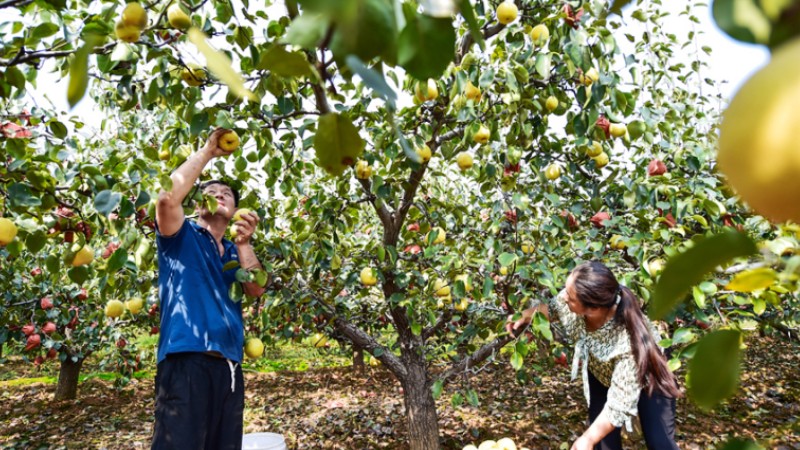Small projects for greater prosperity
BEIJING, Oct. 13 (Xinhua) -- From spreading agricultural technology to setting up vocational workshops, some seemingly small projects under the Belt and Road Initiative (BRI) have delivered great benefits for local people with the care and support of Chinese President Xi Jinping.
Humble as it looks, a Chinese "magic" grass has managed to travel afar and has taken root in the exotic land of Papua New Guinea (PNG), enriching barren soil and empowering local farmers to overcome poverty.
The wondrous grass, or Juncao, refers to the technology discovered by Chinese scientists to grow mushrooms using grass instead of timber as a substrate that is more economical and environmentally friendly.
When working in east China's Fujian Province more than two decades ago, Xi introduced the Juncao technology to a visiting provincial governor from the PNG, who turned out to be quite interested.
Xi soon dispatched the inventor of Juncao technology to the Pacific country to share this technology and provide on-the-ground training courses for local farmers.
"After I became vice president, I have continued to promote Juncao technology when visiting the South Pacific, Africa, and South America," Xi said at a symposium on BRI development in 2021.
He highlighted the role of BRI projects in improving people's wellbeing, saying "small yet great" projects could deliver direct impacts on people.
"Projects on people's livelihood are crucial to rapidly boosting the sense of gain of people in BRI participating countries. They could produce immediate and evident results," the president said at the symposium.
He demanded prioritizing these "small yet great" projects in international cooperation, stepping up overall planning in the future, and better leveraging funds for projects that answer to the public's demands and forge closer ties among people.
Today, Juncao technology is being applied in more than 100 countries, creating hundreds of thousands of green jobs for local people.
Luban Workshop, a Chinese vocational workshop program, is another "small yet great" project that Xi has supported. The first of such workshops was set up in Thailand in 2016. Two years later, Xi said China would set up 10 Luban Workshops in Africa to offer vocational training for young Africans.
Since then, Xi has on many occasions spoken on supporting the development of Luban Workshops in BRI participating countries.
While addressing the China-Central Asia Summit this May, Xi urged efforts to set up more Luban Workshops in Central Asian countries as part of the efforts to build up the region's development capabilities.
The first Luban Workshop in Central Asia, launched last year in Tajikistan, has already brought tangible results. It has so far helped train over 300 talents and is expected to see over 50 students graduate this year.
So far, China has helped establish 21 such workshops in 20 countries in Asia, Africa, and Europe, providing training facilities and programs to help foster local talent with the needed skills and capabilities.
Other "small yet great" BRI projects have also prospered. In Liberia and Ethiopia, China has shared bamboo weaving crafts with local farmers to help them make furniture and increase their incomes. In Georgia, vegetable greenhouses have been promoted, helping local people to achieve vegetable self-sufficiency.
These projects, designed based on local conditions, are evidence of how BRI cooperation has helped address the pressing needs of local people.
The ultimate goal of the BRI is to explore new ways for countries from near and far to achieve common development and to open up a "path of happiness" that benefits the whole world, Xi said.
Photos
Related Stories
- Xi's Quotes | The time is always right to do the right thing
- A gift from China to global development
- A school linking a Pacific island country and China
- Interview: Cultural exchanges with China have thrived under BRI, says senior Kenyan official
- Interview: 3rd Belt and Road Forum for Int'l Cooperation will add positive energy, stability to world: vice FM
- Inspirational tour across China: Tanzanian officer commends BRI for promoting global cooperation and connectivity
Copyright © 2023 People's Daily Online. All Rights Reserved.









